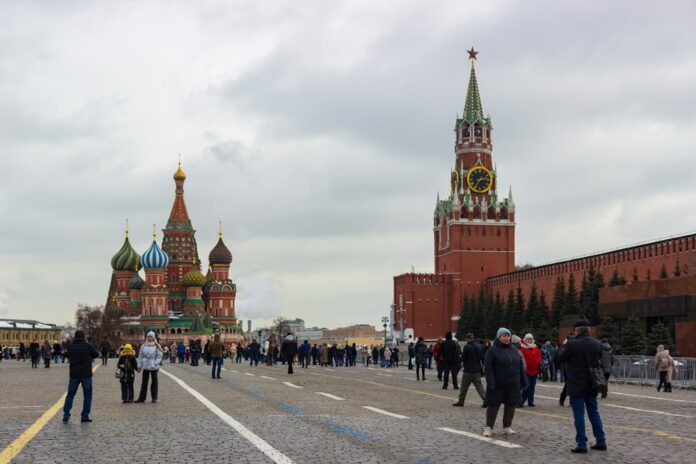A senior Russian policymaker has proposed measures to prevent younger citizens from accessing illegal online casinos.
According to the Russian state-run news agency TASS, Yevgeny Masharov, a member of the Civic Chamber of the Russian Federation’s public bills and regulations commission, made the comments.
Masharov said that Russian regulators and lawmakers could take a two-pronged approach to solving the “problem of illegal online casinos” in the country.
He said this could involve blocking access to gambling-related “websites and applications,” as well as blocking “payments made using cryptocurrency.” Masharov said: “The problem of illegal gambling can be solved in two ways. The first is to block websites and applications. And the second is blocking payments made in cryptocurrency.”
Russian Online Casinos – Bans and Blocks Incoming?
Masharov noted that the illegal gambling sector is harming the country’s regulated gaming industry.
He remarked that most complaints and appeals are now “related to online casinos and gambling apps.”
The policymaker said that many of these complaints come from the parents of younger Russian smartphone users. He explained: “Gamification has become a trend, while the simplicity and convenience of gambling games attract new users. The legal gambling market is now losing out to illegal operators.”
Masharov added that illegal online casinos “do not have requirements for user identification or age verification policies.”
He said that Roskomnadzor, the Russian internet censor, could enforce the app bans. Masharov also argued that the anti-money laundering agency Rosfinmonitoring and the Central Bank could “help solve” the crypto “problem.”
“[We must] help stop operators from attracting children to their schemes,” Masharov said.
Masharov was speaking at a public discussion that addressed a “system of measures to prevent and avoid the consequences of the influence of the gambling business on teenagers and youths.”
Previous Russian Web and Crypto ‘Ban’ Efforts Largely Ineffective
Russia has enjoyed decidedly mixed success in attempting to block access to websites and apps in the past.
Moscow attempted to block public access to the Telegram chat app in 2018, but effectively failed to stop citizens from accessing the platform. It eventually reversed the ban in 2020.
The government has also attempted to outlaw VPNs (Virtual Private Networks), which citizens often use to access websites blocked by Roskomnadzor.
While some services have been affected by the VPN ban, Casinobeats has seen evidence that many Russian residents continue to use VPN apps with relative impunity.
Bans on crypto have proven equally hard to enforce. Officially, crypto has no legal status in the country, although the Russian legal code outlaws (but does not criminalize) the use of crypto assets in domestic payments.
However, crypto adoption is rising fast in Russia. The nation’s crypto mining sector continues to grow rapidly. And Russian firms are increasingly turning to crypto as a tool for cross-border remittances and international trade settlements.
In 2023, the gambling group Flutter Entertainment agreed to pay a $4 million penalty imposed by the US Securities and Exchange Commission (SEC).
The SEC accused Flutter of “failing to devise and maintain a sufficient system of internal accounting controls over its operations in Russia” between 2015 and 2020.











